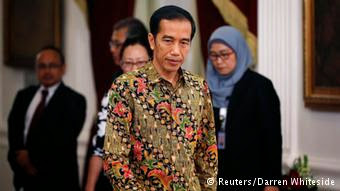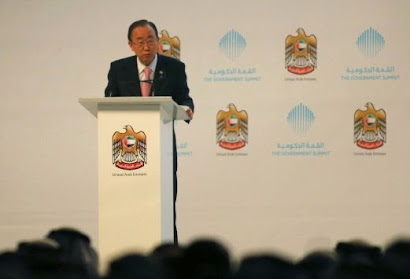Hendrik E. Niemeijer, Contributor The Jakarta Post, Denpasar, Bali
One of the crucial orientation points in the search for Indonesia's (future) identity is history.
Local identity, regional autonomy, the rise of Islam and Christianity, centralization of government, environmental changes, natural disasters, corruption, the encounter with the West -- all hot topics have their own history.
The problem is that national history hardly deals with them, and that the collective memory does not recall much.
Bali conference on collective memory
The functioning of national collective memory was debated among archivists and historians at a conference in Bali held Sept. 3 through 5.
The organizer, Arsip Nasional Republic Indonesia (ANRI), invited several heads of national archives from Sri Lanka, India, Portugal, the UK, Australia, Singapore, South Africa and Surname. These countries keep interesting records on their past contacts with Indonesia. Archivists from these countries presented their collections.
New finding aid of VOC records
Special emphasis was given to the cooperation with the Netherlands.
State Minister of Administrative Reforms Taufiq Effendi received the first copy of a 571-page book Arsip-arsip Verenigde Oostindische Compagnie dan lembaga-lembaga pemerintahan kota Batavia.
On this occasion, the Minister of Home Affairs of Suriname, Mr. Maurtis Hassankhan, also received the book. The Director General of ANRI, Mr. Djoko Utomo, explained how the book contains the final inventories of hundreds of meters of records of the former VOC (1602-1795).
The fact that ministers from both Indonesia and Suriname paid full attention to VOC-records and colonial archives is not only a sign of the much improved political relations between the Netherlands and its former colonies, but also demonstrates a growing political awareness of the importance of an objective re-evaluation of historical relations.
In his speech last year at the opening of the academic year of Leiden University, Taufiq rightly analyzed Indonesia's history from a global perspective.
Regional and 'autonomous' history
VOC-records offer many insights concerning the so-called "Age of Reconnaissance" or "Age of Partnership". Thousands of records witness the first personal encounters between Asians and Europeans.
These encounters offer many surprises. When the Dutch arrived on Java around 1600, they discovered that the Javanese were of their own size and "physically well-shaped".
For Indonesia, VOC-records are absolutely invaluable to study local and regional 17th- and 18th-Century history. At the Bali conference, several Indonesian archivists from the different kabupaten (regencies) and provinces were present.
The regions suffer from an almost complete lack of historical documentation when they aim to establish their own museums and libraries. The VOC-records offer a rich documentation from the times that most of the regions of the Malay-Indonesian archipelago were still independent sultanates and principalities.
Historians have already started a reevaluation of regional Indonesian history in the 1970s, after colonial history writing had been declared dead.
While Indonesia's historians were completely occupied by constructing national history, U.S. and Australian historians such as M.C. Ricklefs, L.Y. Andaya and A. Reid did something completely different.
They started to focus on regional "autonomous" Southeast Asian history. Much research was done in the 1.5 kilometers of VOC records being kept in the National Archives of the Netherlands in The Hague. The VOC records also constitute important data on Japan, China, Vietnam, Thailand, Sri Lanka, Iran and Yemen.
In 2004 UNESCO rightly included the VOC records in its Memory of the World Register.
New partnerships on mutual heritage
With the new Indonesian inventory, some of the two kilometers of VOC archives kept in the ANRI depots are now accessible to the public. The finding aid is the outcome of seven years of cooperation between Indonesian and Dutch archivist in the program "Towards a New Age of Partnership" (www.tanap.net).
Recently Leiden University launched a new program called "Encountering a Common Past" (Encompass) to train Indonesian historian and archivists.
Hopefully, these initiatives will be followed by more projects including also the period up to 1942. ANRI also keeps some 10 kilometers of 19th- and 20th-Century Dutch archives. ANRI keeps the fourth-largest collection of Dutch archives anywhere in the world.
Since Indonesia's independence, the Indonesian government has had the wisdom to finance the preservation of these Dutch collections and not in vain. An increasing number of well-trained Indonesian historians make use of them for a modern rediscovery of the rich history of the different regions of the Malay-Indonesian archipelago.
Hendrik E. Niemeijer is a historian at Leiden University, The Netherlands.














